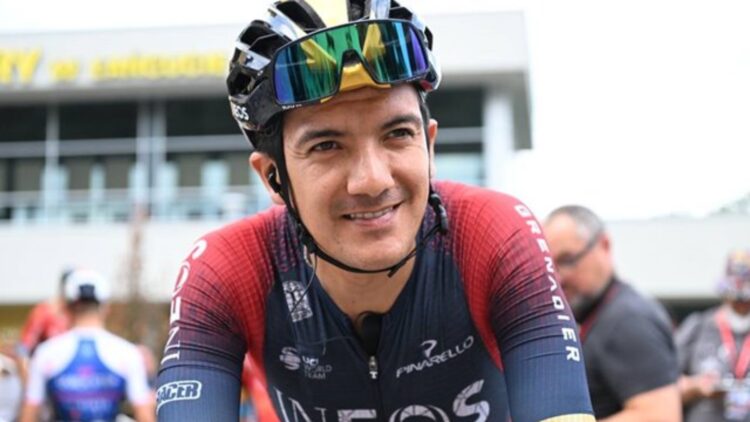The World Cycling Championships in Kigali, Rwanda, have gained attention in recent months for being a first-of-its-kind event on the African continent, not to mention the high expectations surrounding the names involved. The tournament carries historic symbolism and opens the way for a new geography in cycling. There are already debates surrounding favoritism, rivalries, and even political issues surrounding the composition of the national teams.
Carapaz out of the Vuelta and full focus on the Rwanda World Cup
Former Olympic champion Richard Carapaz will miss this year’s Vuelta a Espana as he is yet to fully recover from an illness, the Ecuadorian confirmed on Tuesday. Carapaz, second in the 2020 Vuelta, also missed the Tour de France with the same gastrointestinal illness and has not raced since finishing third overall at the Giro d’Italia in May.
“After the illness I had, I had to stop several times as I couldn’t train for more than two or three days at a time. Now in Ecuador, I’m trying to get back to normal with training and continue moving forward with what we had planned. I’m almost fully recovered now.” Carapaz said in a EF Education-EasyPost team statement.
Carapaz, who won the road race gold medal in Tokyo, said his season focus was now the world championships in Rwanda. “Now, the next goals we’ve set are the Italian classics, especially Il Lombardia, and also the world championships in Rwanda,” Carapaz said. “It’s a very special world championship for me, where I have a big opportunity, and I want to prepare for it the best way possible.” The world championships are being held in Kigali from September 21, the first time the event has been staged in Africa.
Favoritism and rivalries at the Kigali World Cup
The perception that Tadej Pogacar arrives as one of the big favorites for the World Cup is growing among sports experts. The Slovenian, winner of the Tour de France, is considered by professionals to be the better contender compared to Jonas Vingegaard, especially on a course like Kigali, which is very demanding. The Rwandan capital’s mountainous route may favor a more aggressive racing style like Tadej’s, and this has further heightened expectations of a possible head-to-head clash between the two.
Some teams are missing some of the sport’s biggest names, and this could impact the competition’s balance. The Danish team, for example, will have a reduced lineup and will not compete in the elite individual time trial, representing a significant reduction in the team’s total. Teams like Slovenia and Belgium may end up having a more prominent role in the competition.
Strategic decisions of national teams
Something behind the scenes caught the eye: Denmark’s drastic reduction in its delegation. With fewer riders available, the team loses its ability in road races and gives rivals room to explore attacks and strategies against the team. The absence of the time trial also limits the team’s chances, where medal contenders traditionally win medals.
A historic championship for Africa
Holding the World Championships in Rwanda is more than just a sporting event; it marks a symbolic moment for world cycling. This is the first time the competition has taken place on the African continent, signaling the sport’s growth in the region, as well as the UCI’s efforts to diversify its competition venues. Kigali boasts significant tourism and cultural potential, and it is believed the venue will become a prominent host for major international events.
The Vuelta a España will continue without Carapaz, but the Ecuadorian and much of the peloton’s focus is already on Kigali. With the African continent’s debut on the World Championship calendar, this edition is likely to be marked by fierce competition, as well as a historic event for the region. More than crowning a champion, the event will expand cycling’s global visibility into new frontiers.
GCN.com/Reuters


